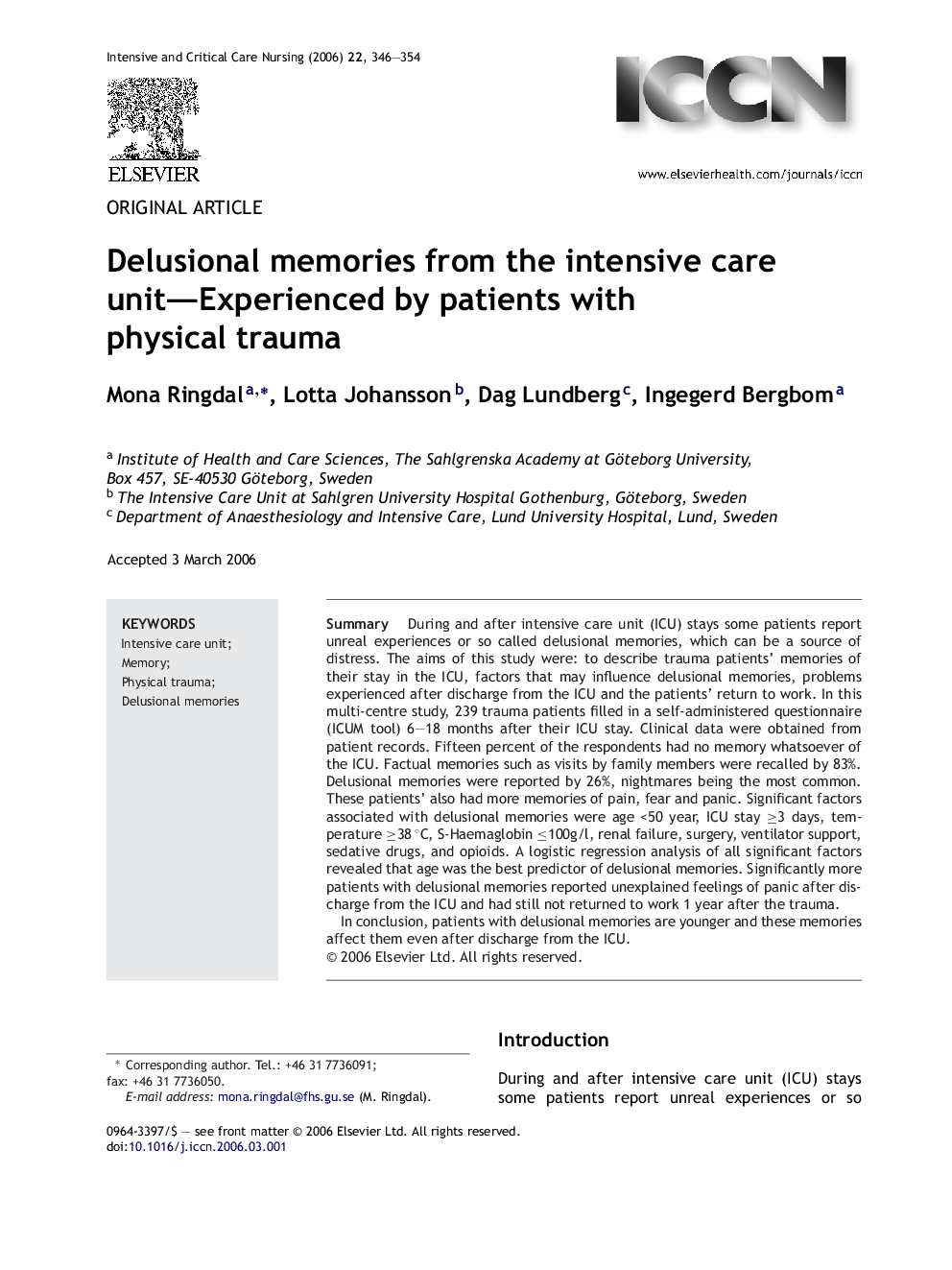| Article ID | Journal | Published Year | Pages | File Type |
|---|---|---|---|---|
| 2652170 | Intensive and Critical Care Nursing | 2006 | 9 Pages |
SummaryDuring and after intensive care unit (ICU) stays some patients report unreal experiences or so called delusional memories, which can be a source of distress. The aims of this study were: to describe trauma patients’ memories of their stay in the ICU, factors that may influence delusional memories, problems experienced after discharge from the ICU and the patients’ return to work. In this multi-centre study, 239 trauma patients filled in a self-administered questionnaire (ICUM tool) 6–18 months after their ICU stay. Clinical data were obtained from patient records. Fifteen percent of the respondents had no memory whatsoever of the ICU. Factual memories such as visits by family members were recalled by 83%. Delusional memories were reported by 26%, nightmares being the most common. These patients’ also had more memories of pain, fear and panic. Significant factors associated with delusional memories were age <50 year, ICU stay ≥3 days, temperature ≥38 °C, S-Haemaglobin ≤100g/l, renal failure, surgery, ventilator support, sedative drugs, and opioids. A logistic regression analysis of all significant factors revealed that age was the best predictor of delusional memories. Significantly more patients with delusional memories reported unexplained feelings of panic after discharge from the ICU and had still not returned to work 1 year after the trauma.In conclusion, patients with delusional memories are younger and these memories affect them even after discharge from the ICU.
